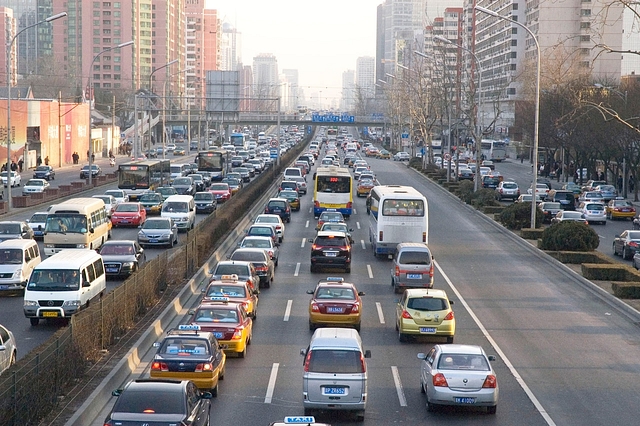
China’s Ruthless Eviction Of Migrants Out Of Beijing Draws Widespread Criticism
China is flushing people out of Beijing as part of a major plan to wipe its city centre off excess population, a fallout of rapid urbanisation that has led to aggravating congestion, pollution and water-supply problems.
A report says the people picked out to be evicted are migrant workers and this is evident from the continuing demolition of their homes in capital city Beijing.
As part of a grand plan to restrict greater Beijing’s population and to shrink the urban centre, China will have to push out about 2 million people, which is expected to further President Xi Jinping’s goal to build a metropolitan area similar to the New York City or London.
China, which is drawing a lot of flak for this high-handed measure, explained that the ‘unsafe’ houses are being razed down following a fire tragedy in which 19 people died.
The government is shutting the doors of its capital to people by closing down businesses and services and moving out some others to woo people out of the central areas of the city. The strategy is to move low-end businesses, such as wholesale markets, to Hebei – the province surrounding Beijing where growth has slackened –and force people to move there.
But businessmen do not want to leave as they will lose clients, and some of the older shopkeepers hesitate as they cannot start all over again in a new place. Some of them were forced to shift a few blocks away when power supply was cut. “My whole family is here. My home is here. I’m not going anywhere,” says a mother of a 12-year-old.
Beijing has restricted migrant workers and other newcomers from obtaining a Beijing hukou, but many Chinese work around that by paying for private school or health care.
The effort that began last year has seen 150 markets closed, equivalent to thousands of shops. It aims to close all wholesale or low-end markets within the city’s Fourth Ring Road by 2020. The government has also shut down or relocated 174 factories in the first half of this year, according to the city government.
Moving people out by force has its own problems, said Jiangping Zhou, a professor of urban planning at the University of Queensland, Australia. “What policy makers need to understand is that the market is not only a concept of economics, it is also about human nature and human rights,” Zhou said.
Greater Beijing now has almost 22 million people, an increase of some 6 million in a decade, official data show. The central area, comprising six districts, grew at an average of 414,200 a year over the same period to about 13 million.